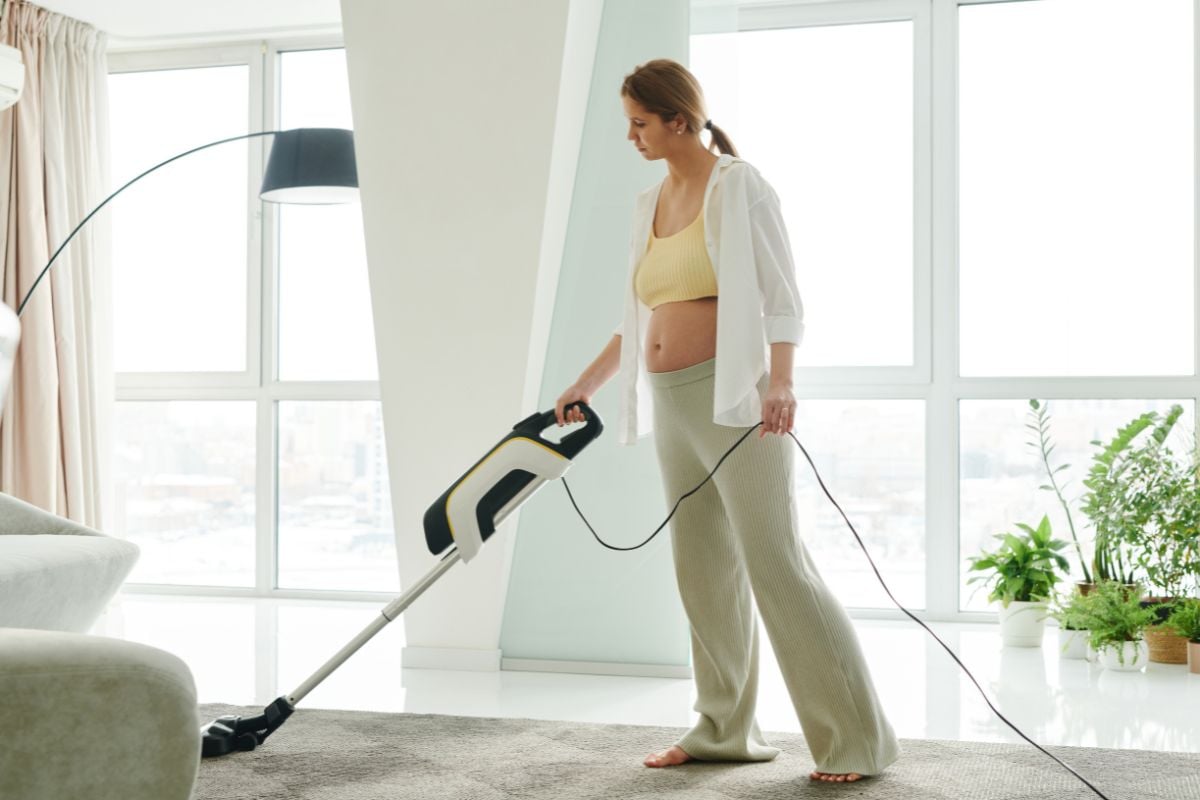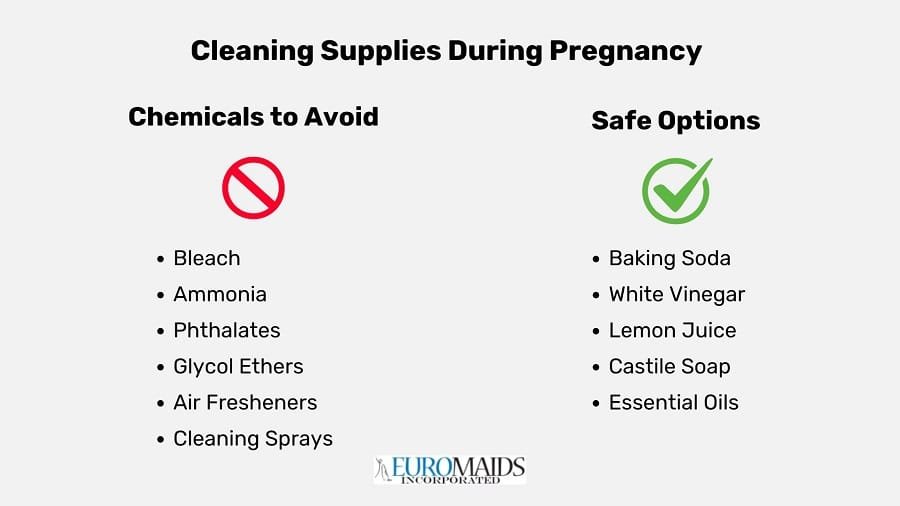Are you expecting a baby and wondering if using a vacuum cleaner could harm you or your little one? It’s natural to worry about everyday tasks during pregnancy.
You want to keep your home clean, but safety comes first. Could the dust, vibrations, or chemicals from your vacuum pose any risks? This article will help you understand what experts say and share simple tips to keep both you and your baby safe while cleaning.
Keep reading—you deserve peace of mind every step of the way.

Credit: ireadlabelsforyou.com
Vacuum Cleaner Safety Basics
Using a vacuum cleaner during pregnancy can raise some questions. Many expectant mothers wonder about safety. Understanding basic safety tips helps ease concerns. It also guides better choices for cleaning tasks. Knowing what to expect makes cleaning easier and safer.
Vacuum cleaners come in different types. Some are lighter and easier to use. Others might be heavier but more powerful. Choosing the right vacuum depends on your comfort and needs. Safety starts with picking the right machine.
Common Concerns During Pregnancy
Pregnant women often worry about chemicals and dust. Dust can cause allergies or breathing problems. Strong smells from some vacuum cleaners may cause nausea. Heavy lifting or bending might strain the back. Noise from vacuums can also be stressful. These worries are normal and should be addressed carefully.
Types Of Vacuum Cleaners
Stick vacuums are light and easy to handle. They work well for quick cleanups. Upright vacuums are heavier but cover large areas fast. Canister vacuums are flexible with long hoses. Robot vacuums clean automatically with little effort. Cordless vacuums offer freedom to move without wires. Each type has pros and cons for pregnancy use.
:max_bytes(150000):strip_icc()/mom-cleaning-bathroom-d33806d2963a4bbd8d25dd79963e8e7a.jpg)
Credit: www.parents.com
Potential Risks To Consider
Using a vacuum cleaner during pregnancy might seem simple. Yet, certain risks deserve attention. These risks could affect both mother and baby. Understanding them helps in making safer choices.
Exposure To Dust And Allergens
Vacuuming stirs up dust and allergens in the air. Breathing this can irritate the lungs. It may cause coughing or sneezing fits. For pregnant women with asthma, this is risky. Dust exposure might trigger allergies or breathing problems. Using a vacuum with a HEPA filter reduces this risk.
Noise And Vibrations Impact
Vacuum cleaners produce loud noise and vibrations. Loud noise can increase stress levels. Stress may affect the baby’s development. Vibrations might cause discomfort or muscle strain. Standing for long while vacuuming may also tire the body. Taking breaks and using quieter models helps.
Chemical Emissions From Vacuum Cleaners
Some vacuum cleaners release small amounts of chemicals. These come from motor parts and dust bags. Chemicals in the air might irritate the eyes and throat. Pregnant women should avoid strong chemical exposure. Choosing models with low emissions is safer.
Health Precautions For Pregnant Users
Pregnancy requires extra care, especially when using household tools. Vacuum cleaners can stir up dust and allergens that affect breathing. Taking health precautions helps protect both mother and baby. Simple steps make vacuuming safer and easier during pregnancy.
Proper Ventilation And Air Quality
Keep windows open to improve airflow. Fresh air lowers dust and particles in the room. Use vacuum cleaners with good filters to trap dust. Avoid vacuuming in small, closed spaces. Good air quality helps prevent breathing problems.
Using Protective Gear
Wear a mask to reduce dust inhalation. Gloves protect your hands from dirt and germs. Choose comfortable shoes to avoid slipping or falling. Protective gear lowers the risk of allergies and infections.
Limiting Duration And Intensity
Vacuum in short sessions to avoid tiredness. Take breaks to rest and breathe easily. Use a lightweight vacuum cleaner for less effort. Avoid heavy lifting or bending for long times. Short and gentle cleaning keeps you safe and comfortable.
Safe Practices For Vacuuming While Pregnant
Vacuuming during pregnancy requires care to protect both mother and baby. Dust and allergens can affect health. Safe vacuuming keeps the home clean without causing harm. Follow these simple steps to vacuum safely while pregnant.
Choosing The Right Vacuum Cleaner
Pick a vacuum that is lightweight and easy to move. A vacuum with a HEPA filter helps trap dust and allergens. Avoid models that are loud or heavy. Cordless vacuums offer easy handling and reduce tripping risks. A cleaner that works quietly lowers stress and protects hearing.
Optimal Timing And Frequency
Vacuum during times when you feel most energetic. Avoid cleaning when you feel tired or dizzy. Limit vacuuming to short sessions to prevent strain. Try not to vacuum every day; two to three times per week is enough. Rest well before and after vacuuming to stay safe.
Alternative Cleaning Methods
Use a damp cloth or mop to reduce dust without stirring it up. Air purifiers help keep the air clean and fresh. Ask family or friends to help with heavy cleaning tasks. Regularly open windows to let fresh air circulate. These methods reduce exposure to dust and chemicals.
When To Consult A Healthcare Provider
Pregnancy brings many questions about safety and health. Using a vacuum cleaner might seem simple. But knowing when to ask a doctor is key. Some signs need medical advice. Personal health also affects decisions. Understanding these points helps protect both mother and baby.
Recognizing Symptoms Of Concern
Feeling dizzy or very tired during vacuuming is a warning. Sharp pain in the belly needs quick attention. Shortness of breath or chest pain means stop and seek help. Any unusual bleeding or fluid leaks require immediate care. These signs show the body might be stressed.
Personal Health Conditions To Consider
High blood pressure or heart problems change how safe vacuuming is. If pregnancy has complications like preterm labor risk, avoid heavy chores. Asthma or allergies can get worse with dust from cleaning. Talk to a healthcare provider about your specific health. Their advice fits your unique needs best.

Credit: www.euro-maids.com
Frequently Asked Questions
Is Vacuum Cleaning Safe During Early Pregnancy?
Yes, vacuum cleaning is generally safe during early pregnancy. Avoid heavy lifting and take breaks to prevent fatigue. Use a lightweight vacuum and maintain good posture to reduce strain.
Can Vacuum Cleaners Affect Pregnancy Health?
Vacuum cleaners do not pose direct health risks to pregnancy. However, exposure to dust or strong fumes from cleaning products may cause irritation. Ensure proper ventilation and use hypoallergenic bags or filters.
Should Pregnant Women Avoid Vacuuming Carpets?
Pregnant women can vacuum carpets but should avoid stirring up excessive dust. Use a vacuum with a HEPA filter to trap allergens. Take breaks and avoid overexertion to stay safe.
How To Reduce Vacuuming Risks While Pregnant?
To reduce risks, use a lightweight vacuum and maintain good posture. Avoid bending excessively and take frequent breaks. Ensure rooms are well-ventilated to minimize dust inhalation.
Conclusion
Using a vacuum cleaner during pregnancy is generally safe. Avoid strong fumes and keep good posture to prevent strain. Choose quieter, lightweight models to reduce stress and noise. Take breaks often and don’t lift heavy parts. Listen to your body and stop if you feel tired.
Always ask your doctor if you have concerns. Clean home safely and comfortably for your health. Small steps help protect both you and your baby. Stay cautious but don’t worry too much. Safe cleaning keeps your space fresh and you happy.

